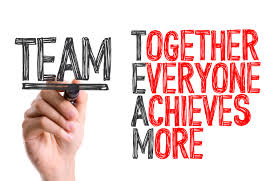 This article is based on the concept of self-deception in the book Leadership and Self Deception by the Arbinger Institute.
This article is based on the concept of self-deception in the book Leadership and Self Deception by the Arbinger Institute.
I like to conduct this activity in some training courses where I ask the participants to rate themselves as leaders on a scale of 1 to 10. I ask them to write down the score they give to themselves on a piece of paper without showing the score to others. When everyone is done, I ask each individual to tell me their score and then plot this on a line on the board that goes from 1 to 10. 90% of the responses are usually between 7-9. This is people basically saying they’re very good but they hold back just a wee bit to show some humility by not scoring themselves as 10. You may find the odd outlier – a 3 or a 10 – but this is quite rare.
As I point out how all the responses lie within a very narrow zone, the participants start to laugh as they realize that there is a coincidence, a pattern here. I then ask them to do the same exercise but this time imagining how their colleagues would score them. This time, the zone is not 7-9, it is more like 4-6. The question I then ask them is “what is this distance between the 7-9 and 4-6 due to?” The answer of course is self-deception.
 You are having a conversation with your team and someone asks a question about the best way forward. You honestly don’t have a clue. Or you might be a trainer and one of the participants asks a tough question and you simply don’t know the answer. What do you say in such a situation? Do you blurt out some vague generalities in the hope that this might do the trick or do you own up to the fact when you don’t know the answer?
You are having a conversation with your team and someone asks a question about the best way forward. You honestly don’t have a clue. Or you might be a trainer and one of the participants asks a tough question and you simply don’t know the answer. What do you say in such a situation? Do you blurt out some vague generalities in the hope that this might do the trick or do you own up to the fact when you don’t know the answer? There are a lot of theories about what makes successful teams and we have a tendency to go far afield to look for answers that sometimes can be right under our noses. You will read stuff like successful teams communicate well with each other, the team members respect each other, the team has fun, etc. While this may be true, this is more about how a successful team behaves than what made the team a success in the first place.
There are a lot of theories about what makes successful teams and we have a tendency to go far afield to look for answers that sometimes can be right under our noses. You will read stuff like successful teams communicate well with each other, the team members respect each other, the team has fun, etc. While this may be true, this is more about how a successful team behaves than what made the team a success in the first place. The way the priority and the focus on leadership has changed is a function of how organizational and leadership thinking has evolved over the last 30 years or so. To illustrate the difference, we contrast across various situations what leadership used to be and what it means now:
The way the priority and the focus on leadership has changed is a function of how organizational and leadership thinking has evolved over the last 30 years or so. To illustrate the difference, we contrast across various situations what leadership used to be and what it means now: Read any book about organizational success – whether in a multinational or a small business – and the key to organizational success is related to something business-like: leadership, sales, customer care, profitability, etc. Any reference to recreation and fun is almost always as an add-on. For example, a company retreat with balloons and treasure hunts once a year or a sports day or a company lunch once a quarter. HR managers lecture line managers on the need to have such events so their fun-starved staff can get a chance to “loosen up”. Yet staff engagement remains low….
Read any book about organizational success – whether in a multinational or a small business – and the key to organizational success is related to something business-like: leadership, sales, customer care, profitability, etc. Any reference to recreation and fun is almost always as an add-on. For example, a company retreat with balloons and treasure hunts once a year or a sports day or a company lunch once a quarter. HR managers lecture line managers on the need to have such events so their fun-starved staff can get a chance to “loosen up”. Yet staff engagement remains low…. In a world of increasing inter-connectedness and rapid change, there is a growing need to improve the way people work together. The study of the brain is starting to provide some key insights that can be applied in the real world – for example in the work place. Social neuroscience explores the biological foundations of the way humans relate to each other and to themselves in terms of emotional regulation, attitudes, stereotyping, empathy, status, fairness, collaboration, persuasion, morality, compassion, deception and trust…
In a world of increasing inter-connectedness and rapid change, there is a growing need to improve the way people work together. The study of the brain is starting to provide some key insights that can be applied in the real world – for example in the work place. Social neuroscience explores the biological foundations of the way humans relate to each other and to themselves in terms of emotional regulation, attitudes, stereotyping, empathy, status, fairness, collaboration, persuasion, morality, compassion, deception and trust… Probably the single most important element in people management is to enhance employee engagement. According to a survey done by Gallup USA, only 28% of U.S. employees are engaged. So what are the other 72% doing? Imagine the impact of this on the bottom-line performance of organizations…
Probably the single most important element in people management is to enhance employee engagement. According to a survey done by Gallup USA, only 28% of U.S. employees are engaged. So what are the other 72% doing? Imagine the impact of this on the bottom-line performance of organizations…
Recent Comments